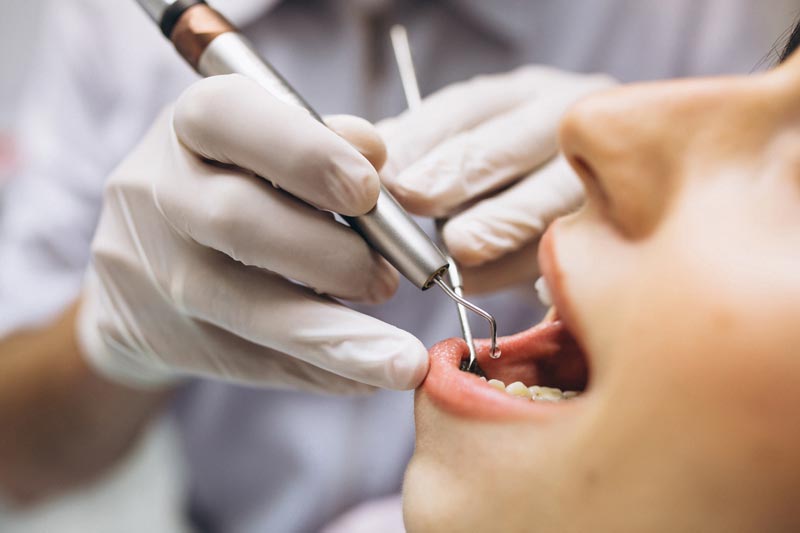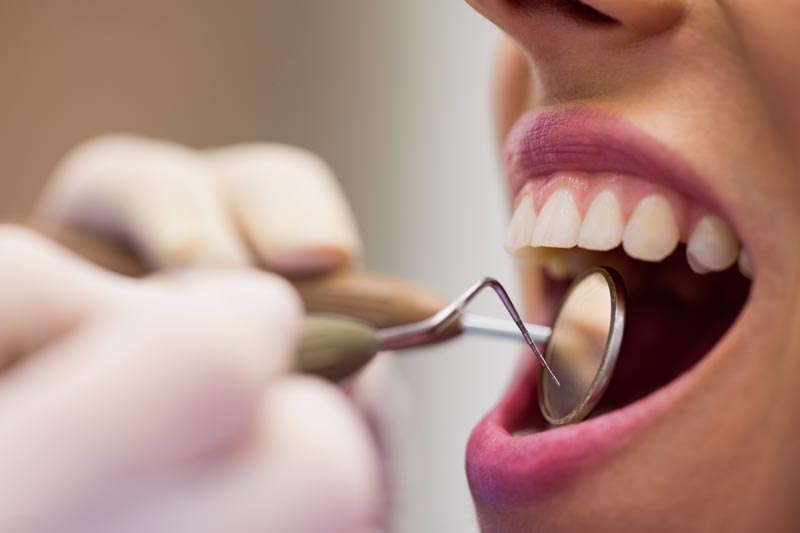Hydration can easily be overlooked, especially with our busy schedules. While mild dehydration can often be remedied with a glass of water, there are times when dehydration can become a serious issue, necessitating a visit to urgent care. In this comprehensive guide, we’ll explore the subtle and not-so-subtle signs of dehydration, why it’s crucial to recognize them, and when it’s time to seek urgent care.
1. Dark Yellow Urine
When recognizing the signs of dehydration, few indicators are as straightforward as the color of your urine. In this section, we’ll dive into why dark yellow urine is a red flag for dehydration and what steps can be taken, including seeking urgent care, if you observe this sign.
Why Does Urine Color Matter?
Understanding the relationship between urine color and hydration is essential. Your kidneys play a vital role in maintaining the body’s water balance. When you’re adequately hydrated, they filter waste and excess substances from the blood, producing pale, straw-colored urine. However, when you’re dehydrated, the kidneys work to conserve water, resulting in more concentrated urine. This concentration is what gives the urine its dark yellow or amber hue. Dark yellow urine isn’t just a coincidence; it directly reflects your body’s need for more fluids.
Monitoring Your Urine Color
One of the simplest ways to gauge your hydration status is by observing your urine color. Here’s how to do it:
Check Your First Morning Urine
Your first trip to the bathroom in the morning can provide valuable insights into your hydration level. If your urine is dark yellow now, it’s a sign that you may not have consumed enough fluids the previous day.
Throughout the Day
Continuously monitor your urine color during the day. Ideally, it should remain pale or light yellow. If it darkens as the day progresses, it indicates that you need to drink more water.
Be Mindful of What You Consume
Certain foods, medications, and supplements can temporarily alter urine color. Be aware of these factors, but don’t dismiss dark yellow urine solely because of them.
When to Consider Urgent Care
While dark yellow urine alone doesn’t necessarily warrant a visit to urgent care, it should serve as a significant wake-up call. If you notice consistently dark yellow urine despite increasing your fluid intake, and you’re experiencing other signs of dehydration such as dry mouth, fatigue, or dizziness, it’s time to take this seriously. Urgent care can provide the necessary evaluation and treatment to address your dehydration promptly. For individuals needing urgent care in Southington, CT, particularly due to dehydration symptoms, exploring nearby options like the esteemed DOCS Medical Group, known for its dependable medical services, is advisable.
2. Dry Mouth and Thirst
Few sensations are as universal and relatable as the dry, parched feeling in the mouth when you’re thirsty. This section delves into the often unmistakable signs of dehydration – dry mouth and unrelenting thirst – and why listening to your body’s signals can be your first line of defense against this condition, potentially sparing you a trip to urgent care.
Why Does Dry Mouth Happen?
Dry mouth, also known as xerostomia in medical terms, is one of the side effects of dehydration. Saliva is crucial in maintaining oral health, from moistening the mouth and aiding digestion to preventing tooth decay. When dehydrated, your body may prioritize conserving water over saliva production, leading to that uncomfortable dry sensation in your mouth.
Thirst
Thirst, the urge to drink, is your body signaling that it needs more fluids. When dehydrated, your body activates this alarm system to prompt you to hydrate. It’s an active response to the deficit of fluids in your system.
The Urgency of Responding to Dry Mouth and Thirst
Dry mouth and thirst should not be taken lightly, as they’re often among the earliest signs of dehydration. Ignoring these signals can lead to more severe symptoms, potentially requiring medical intervention at an urgent care facility. Here’s what you should do:
Drink Water Promptly
It’s important to address chronic dehydration by consistently increasing fluid intake and adopting healthier hydration habits to prevent potential complications. The most immediate response to dry mouth and thirst is to drink water. Your body is sending you a clear message that it needs hydration, and water is the best way to provide it.
Avoid Dehydrating Beverages
When you experience chronic dehydration, your body might struggle to function optimally, so focusing on regular hydration becomes crucial for your overall well-being. While quenching your thirst is essential, avoid beverages that can exacerbate dehydration, such as caffeine and alcohol. These substances can have a diuretic effect, increasing fluid loss.
Observe Other Dehydration Symptoms
Monitor other signs of dehydration, such as dark yellow urine, dry skin, or fatigue. If these symptoms accompany dry mouth and thirst and persist despite increasing fluid intake, it’s time to consider seeking medical attention at an urgent care facility.
Special Consideration for Vulnerable Populations
Children, older adults, and individuals with certain medical conditions may be more susceptible to dehydration. If you or someone you care for falls into one of these categories, pay extra attention to dry mouth and thirst, as they may be less able to communicate their needs.
Hydrate Regularly
Maintaining consistent hydration throughout the day is the best way to prevent dehydration. Make it a habit to drink water at regular intervals, even when you don’t feel thirsty.
3. Dry Skin

Dehydration often manifests itself in various ways, and one of the most noticeable signs is the condition of your skin. In this section, we explore how dehydration affects your skin, the potential implications of dry skin, and when a visit to urgent care might be necessary.
How Dehydration Affects Your Skin
Your skin is your body’s largest organ, requiring adequate hydration to maintain health and appearance. Dehydration can rob your skin of its natural moisture, leaving it dry, flaky, and lacking suppleness. Understanding why this happens is crucial:
Reduced Blood Flow
Dehydration causes your blood volume to decrease, diverting blood away from the skin to prioritize vital organs. This reduction in blood flow can lead to decreased oxygen and nutrient delivery to the skin, resulting in dryness.
Altered Skin Barrier Function
Dehydration can compromise the skin’s natural barrier function. This barrier is responsible for retaining moisture and protecting against external irritants. Skin is more susceptible to dryness, irritation, and potential infections when compromised.
Recognizing Dry Skin
Identifying dry skin isn’t rocket science. It often presents through noticeable changes in texture, appearance, and how it feels to the touch. Here are some indicators:
Rough Texture
Dehydrated skin can feel rough to the touch. Run your fingers across your skin, especially on your arms or legs. It may be a sign of dryness if it feels coarse or uneven.
Flakiness
Flaky or peeling skin is a clear sign that it lacks moisture. This can occur on any body part but is commonly observed on the face, hands, and feet.
Tightness
Dehydrated skin often feels tight, as if it’s stretched too thin. You may notice this sensation, particularly after cleansing your face.
When to Consider Urgent Care
While dry skin may not typically prompt a visit to urgent care, it’s essential to recognize when it’s more than just a cosmetic concern. If dry skin is accompanied by severe symptoms like:
Open Sores or Cracks
Excessively dry skin can lead to painful cracks or open sores, especially on the hands and feet. These can be prone to infection and may require medical attention.
Infection
Dehydrated skin is more susceptible to infections, such as fungal or bacterial skin infections. If you notice signs of infection, such as redness, swelling, warmth, or pus, seeking medical care at an urgent care facility is crucial.
Severe Discomfort
Extreme discomfort, itching, or pain associated with dry skin may require medical intervention. Urgent care can provide treatments to alleviate symptoms and prevent complications. Urgent care in Southington, CT, becomes crucial when dehydration symptoms arise. In such cases, considering nearby and reputable clinics like DOCS Medical Group is a prudent choice for reliable healthcare services.
4. Fatigue and Dizziness
Feeling tired or lightheaded at times is part and parcel of life. But it’s time to take notice when those sensations become persistent, especially in combination with other symptoms. This section will explore how dehydration can lead to fatigue and dizziness, what it means for your body, and when you should consider seeking urgent care.
The Connection Between Dehydration and Fatigue
Fatigue is a common symptom that many people experience from time to time. But when it lingers or becomes debilitating, it could indicate an underlying issue, such as dehydration. Here’s how dehydration contributes to fatigue:
Reduced Blood Volume
When you’re dehydrated, your blood volume decreases. This means there’s less blood available to transport oxygen and nutrients to your muscles and organs. As a result, your body has to work harder to perform everyday tasks, leading to feelings of tiredness and lethargy.
Electrolyte Imbalance
Dehydration often involves a loss of electrolytes, such as sodium and potassium. These minerals play a vital role in muscle function and nerve transmission. An electrolyte imbalance due to dehydration can cause muscle weakness and fatigue.
Dizziness
Dizziness is another common symptom of dehydration. It can manifest as a spinning sensation (vertigo) or lightheadedness. Dehydration-related dizziness occurs because:
Low Blood Pressure
Dehydration can lead to a drop in blood pressure. This drop can reduce blood flow to the brain, resulting in dizziness or a sensation of instability.
Decreased Oxygen Supply
With reduced blood volume, less oxygen reaches the brain. This oxygen deprivation can lead to dizziness and impaired cognitive function.
Recognizing Fatigue and Dizziness
Dehydration-induced fatigue and dizziness often present as:
Persistent Tiredness
If you feel excessively tired, even after a full night’s sleep, and this fatigue doesn’t improve with rest, it’s a sign to take seriously.
Lightheadedness
Dizziness or a sensation of lightheadedness, especially when standing up, can be a clear indicator of dehydration.
Impaired Concentration
Dehydration can affect cognitive function, making concentrating or thinking difficult.
When to Consider Urgent Care
While occasional fatigue and dizziness can have various causes, persistent and severe symptoms accompanying other signs of dehydration may necessitate a visit to urgent care. Here are some scenarios when seeking medical attention is crucial:
Severe Fatigue
If you experience extreme fatigue to the point where it interferes with your daily activities and it’s not improving with rest, consider urgent care.
Dizziness and Fainting
Frequent or severe dizziness, especially if it leads to fainting or loss of consciousness, should prompt an immediate medical evaluation at an urgent care facility. Dehydration complications can escalate, affecting your heart rate and digestion, underscoring the importance of recognizing early signs and seeking appropriate care.
Dehydration in Vulnerable Populations
Children, the elderly, and individuals with preexisting medical conditions may be more vulnerable to severe dehydration. If they exhibit signs of fatigue and dizziness, they must seek urgent care promptly. When confronted with symptoms of dehydration, the search for urgent care in Southington, CT, leads you to reputable clinics such as DOCS Medical Group. Their consistent commitment to delivering reliable medical support sets them apart.
5. Rapid Heartbeat
Dehydration is more than just feeling thirsty; it can send ripple effects throughout your body, including your heart. This section will explore the connection between dehydration and a rapid heartbeat, why it happens, and when to consider seeking urgent care.
Why Does Dehydration Lead to a Rapid Heartbeat?
Your heart is a powerful pump responsible for circulating blood throughout your body. When you’re well-hydrated, your blood volume is sufficient to support this process smoothly. However, dehydration can disrupt this equilibrium, causing your heart to work harder. Here’s how:
Low Blood Volume
Dehydration reduces the volume of blood circulating in your body. With less blood to pump, your heart compensates by increasing its rate to maintain adequate blood flow to vital organs.
Decreased Blood Pressure
As dehydration progresses, it often results in a drop in blood pressure. Your heart responds by pumping faster to maintain normal blood pressure levels. Feeling dehydrated is your body’s way of signaling that it’s time to pause and rehydrate, helping you maintain your well-being and stay active.
Recognizing a Rapid Heartbeat
Feeling your heart race can be unsettling, but it’s a common symptom of dehydration. Here are some key indicators:
Palpitations
You may experience vibrations, which are rapid, irregular heartbeats that you can feel. This can feel like your heart is fluttering or pounding in your chest. When you’re feeling dehydrated, it’s essential to trust your body’s signals and drink water promptly to alleviate the discomfort and restore your energy levels.
Shortness of Breath
Dehydration-induced rapid heartbeat can sometimes lead to shortness of breath as your heart struggles to supply sufficient oxygen.
When to Consider Urgent Care
While a rapid heartbeat on its own may not always require urgent care, there are situations where seeking medical attention becomes necessary:
Severe Palpitations
If you experience severe or persistent palpitations accompanied by other symptoms of dehydration, it’s wise to consider seeking care at an urgent care facility.
Chest Pain
Chest pain should never be ignored, especially when combined with a rapid heartbeat. It can indicate a more severe issue and warrant immediate medical evaluation. Ignoring dehydration complications like kidney problems and heat-related illnesses might lead to more serious health issues, so being attentive to your body’s needs is crucial.
Fainting or Near-Fainting
If dehydration-induced rapid heartbeat leads to fainting or near-fainting episodes, seeking urgent care to determine the underlying cause and receive appropriate treatment is essential. Long-term dehydration symptoms, including muscle cramps and reduced cognitive function, should prompt you to prioritize hydration and seek medical guidance.
Dehydration in Vulnerable Populations
Children, the elderly, and individuals with underlying heart conditions may be more susceptible to the effects of dehydration on the heart. If they exhibit signs of a rapid heartbeat, it’s crucial to consider urgent care.
6. Sunken Eyes

They say the eyes are the windows to the soul, but they can also reveal a lot about your physical health. In this section, we’ll explore how dehydration can lead to the telltale sign of sunken eyes, what it means for your well-being, and when it’s appropriate to consider seeking urgent care.
The Connection Between Dehydration and Sunken Eyes
Your eyes are surrounded by delicate tissues sensitive to changes in your body’s hydration levels. Sunken eyes can be one of the side effects of dehydration.
Loss of Periorbital Fat
Dehydration can cause your body to draw moisture from various tissues, including the fat pads that cushion the area around your eyes. As these fat pads shrink due to fluid loss, it can lead to a hollow appearance.
Constricted Blood Vessels
Dehydration can cause blood vessels near the surface of your skin to constrict, reducing blood flow to the eye area. This reduced blood flow can make the eye sockets appear darker and more sunken. If you consistently ignore long-term dehydration symptoms like frequent thirst and concentrated urine, you might inadvertently put your health at risk over time.
Recognizing Sunken Eyes
Identifying sunken eyes is relatively straightforward, as this sign is often visible in the mirror or when you look at others. Here’s what to look for:
Hollowed Appearance
Sunken eyes appear as depressions or hollows around the eye sockets. This can create the illusion of dark circles or shadows.
Darkening Around the Eyes
Dehydration can lead to a darker appearance around the eyes, often called “bags” or “circles.”
When to Consider Urgent Care
While sunken eyes are usually a cosmetic concern, they can sometimes indicate severe dehydration or underlying medical issues. Here are situations where seeking urgent care is advisable:
Severe Sunken Eyes
If you notice a sudden and severe change in the appearance of your eye sockets, especially if it’s accompanied by other symptoms of dehydration, consider seeking care at an urgent care facility.
Dehydration in Vulnerable Populations
Children and the elderly are more susceptible to the effects of dehydration. If they exhibit sunken eyes, especially if accompanied by other signs of dehydration, it’s essential to consider urgent care.
Persistent Sunken Eyes
If sunken eyes persist even after you’ve increased your fluid intake and taken measures to rehydrate, it’s worth seeking medical evaluation to rule out underlying medical conditions. Dealing with dehydration symptoms and requiring urgent care in Southington, CT? Exploring trusted local clinics nearby, like DOCS Medical Group, can provide you with reliable and top-notch healthcare services.
Ready to Stay Hydrated? Take Care of Yourself at Urgent Care!
Don’t wait until it’s too late — if you’ve experienced any signs of dehydration, it’s crucial to prioritize your health. Our dedicated team of healthcare professionals is here to help at DOCS Medical Group. We’ve got you covered, whether rehydration, expert medical advice, or simply reassurance. Your well-being matters; we’re just a call away to ensure you get the care and support you need. Don’t hesitate to reach out today, and let’s keep you feeling your best! Contact us today for a consultation!










